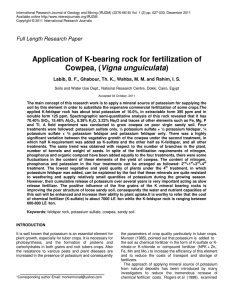167-1 Start Browse by Section/Division of
advertisement
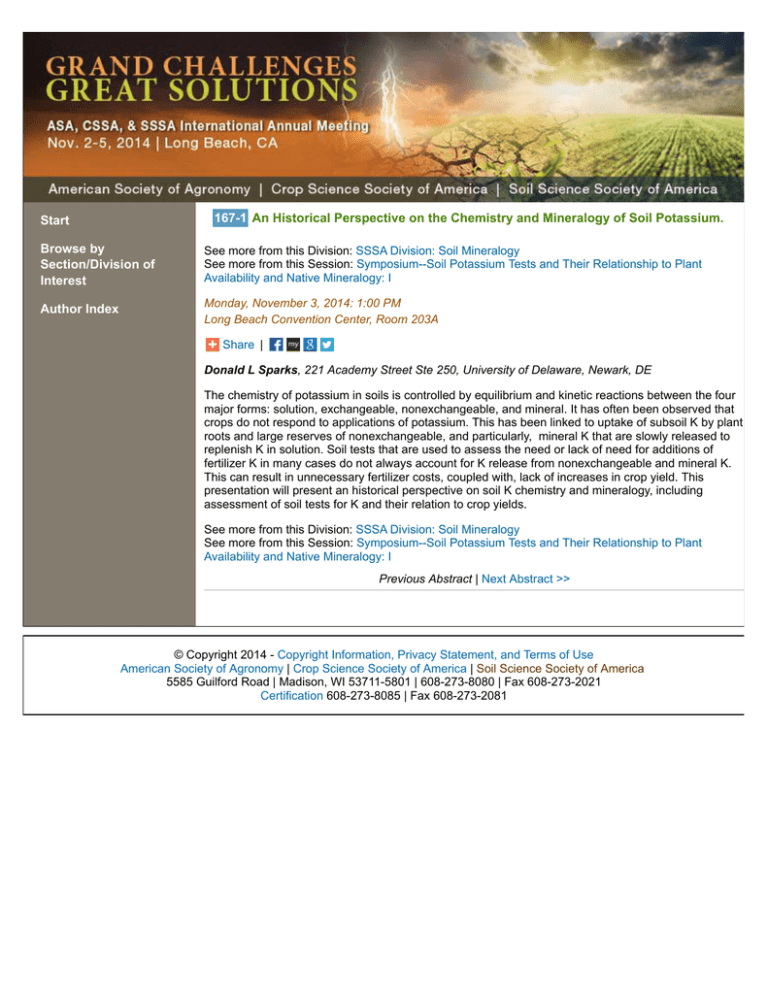
167-1 An Historical Perspective on the Chemistry and Mineralogy of Soil Potassium. Start Browse by Section/Division of Interest See more from this Division: SSSA Division: Soil Mineralogy See more from this Session: Symposium--Soil Potassium Tests and Their Relationship to Plant Availability and Native Mineralogy: I Author Index Monday, November 3, 2014: 1:00 PM Long Beach Convention Center, Room 203A More Share | Share Share Share Share Donald L Sparks, 221 Academy Street Ste 250, University of Delaware, Newark, DE The chemistry of potassium in soils is controlled by equilibrium and kinetic reactions between the four major forms: solution, exchangeable, nonexchangeable, and mineral. It has often been observed that crops do not respond to applications of potassium. This has been linked to uptake of subsoil K by plant roots and large reserves of nonexchangeable, and particularly, mineral K that are slowly released to replenish K in solution. Soil tests that are used to assess the need or lack of need for additions of fertilizer K in many cases do not always account for K release from nonexchangeable and mineral K. This can result in unnecessary fertilizer costs, coupled with, lack of increases in crop yield. This presentation will present an historical perspective on soil K chemistry and mineralogy, including assessment of soil tests for K and their relation to crop yields. See more from this Division: SSSA Division: Soil Mineralogy See more from this Session: Symposium--Soil Potassium Tests and Their Relationship to Plant Availability and Native Mineralogy: I Previous Abstract | Next Abstract >> © Copyright 2014 - Copyright Information, Privacy Statement, and Terms of Use American Society of Agronomy | Crop Science Society of America | Soil Science Society of America 5585 Guilford Road | Madison, WI 53711-5801 | 608-273-8080 | Fax 608-273-2021 Certification 608-273-8085 | Fax 608-273-2081
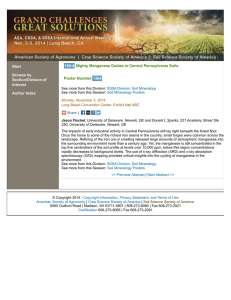

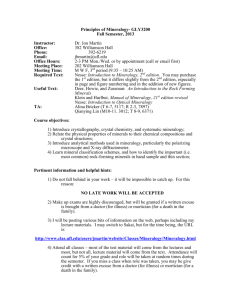
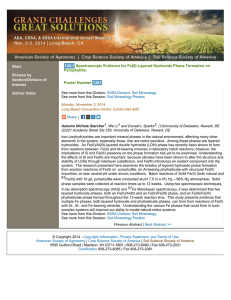
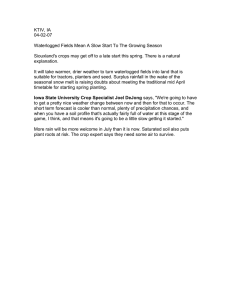

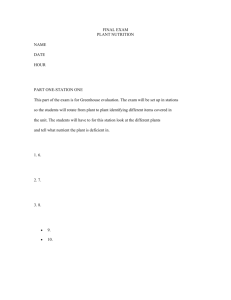


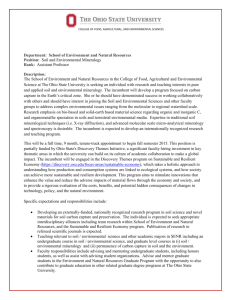
![This article was downloaded by: [University of Delaware] On: 8 July 2009](http://s2.studylib.net/store/data/010766140_1-c1297036de89bb13b935e6c01011f091-300x300.png)
